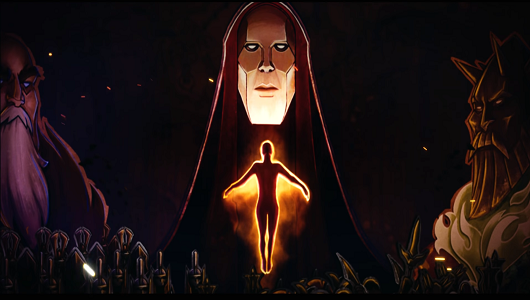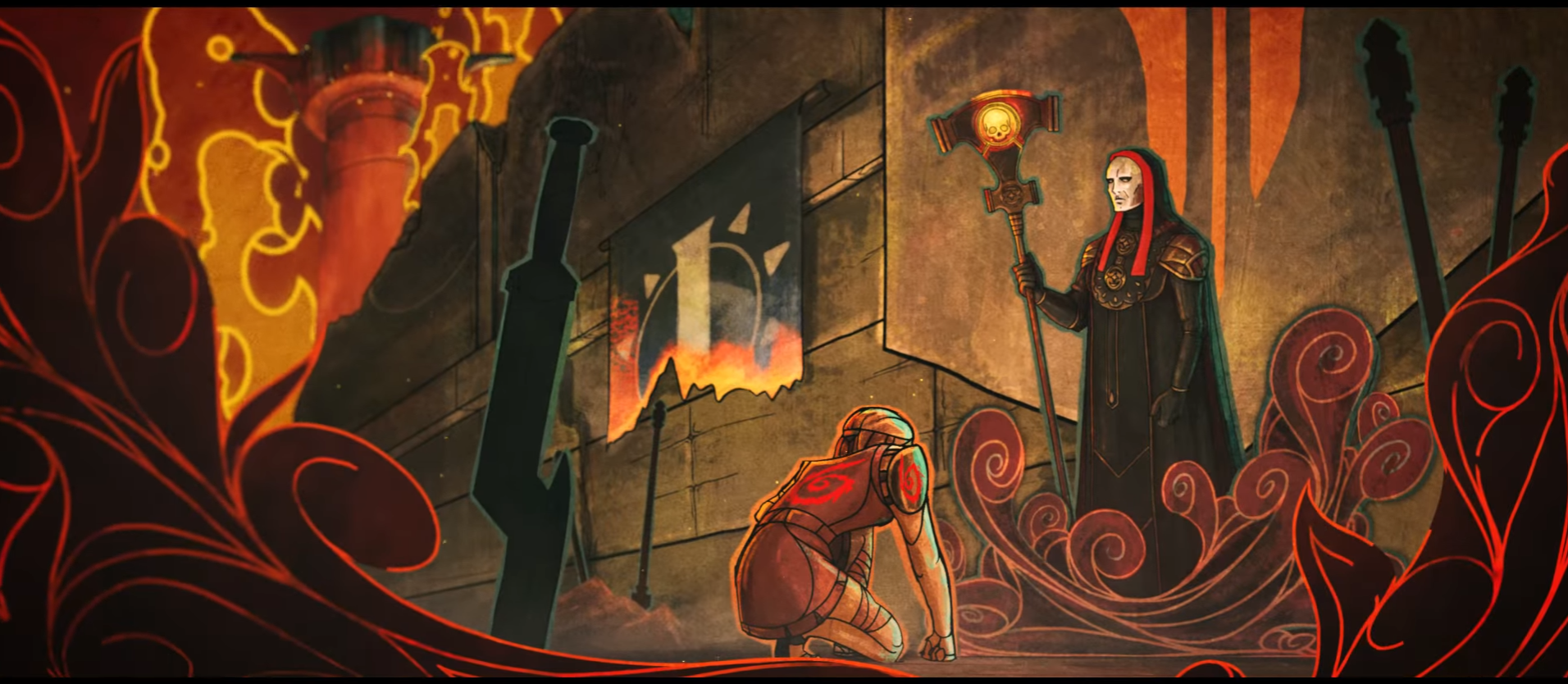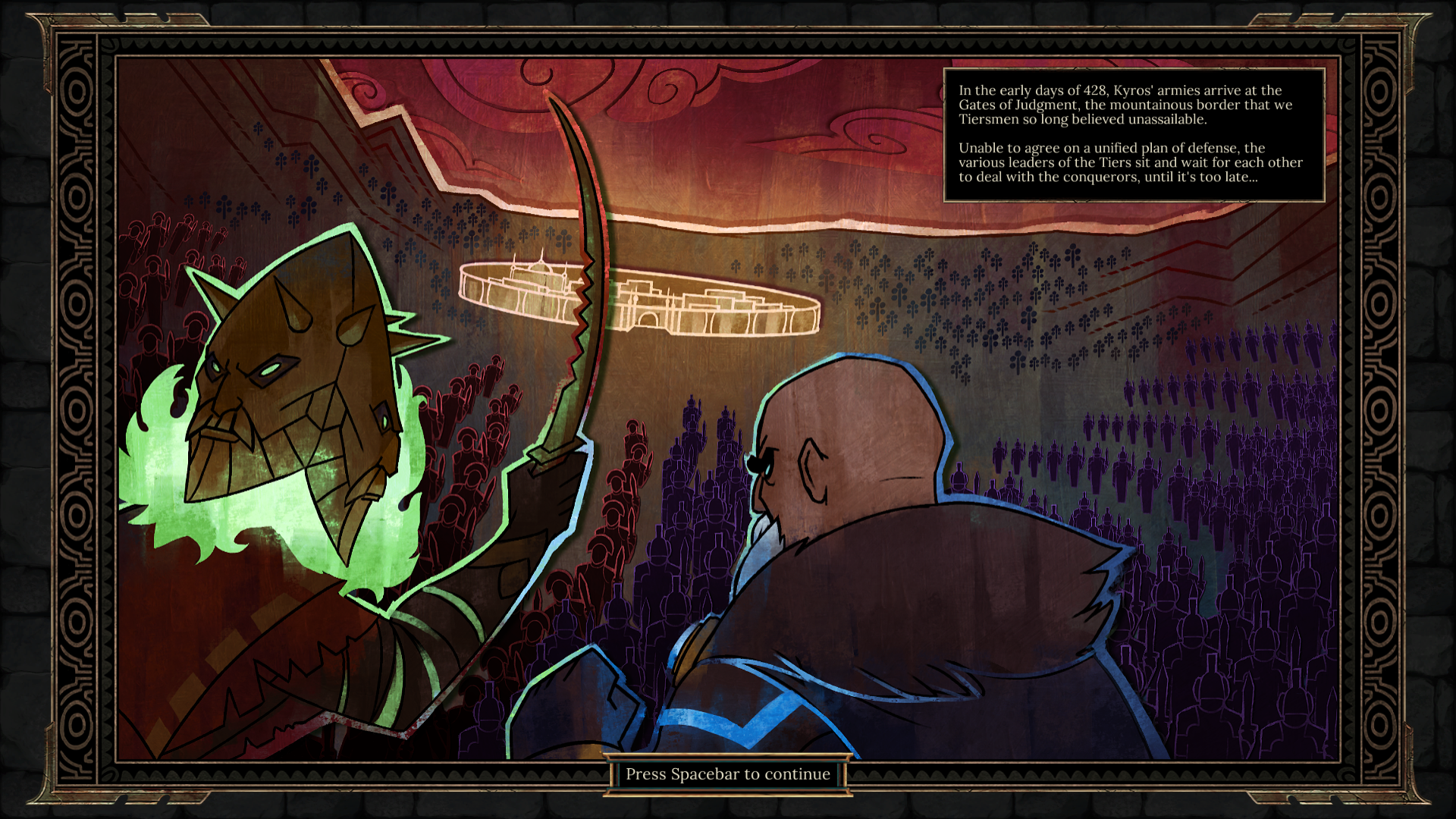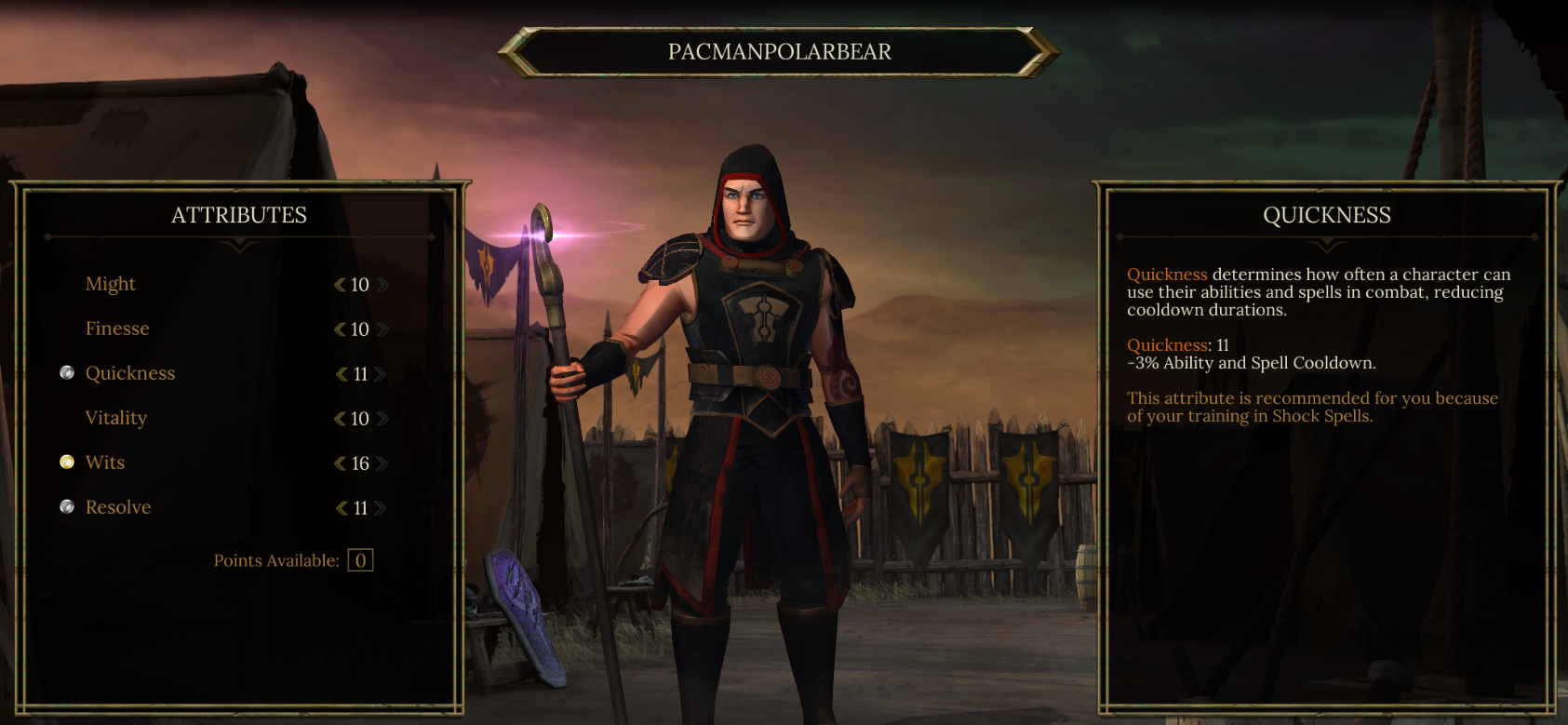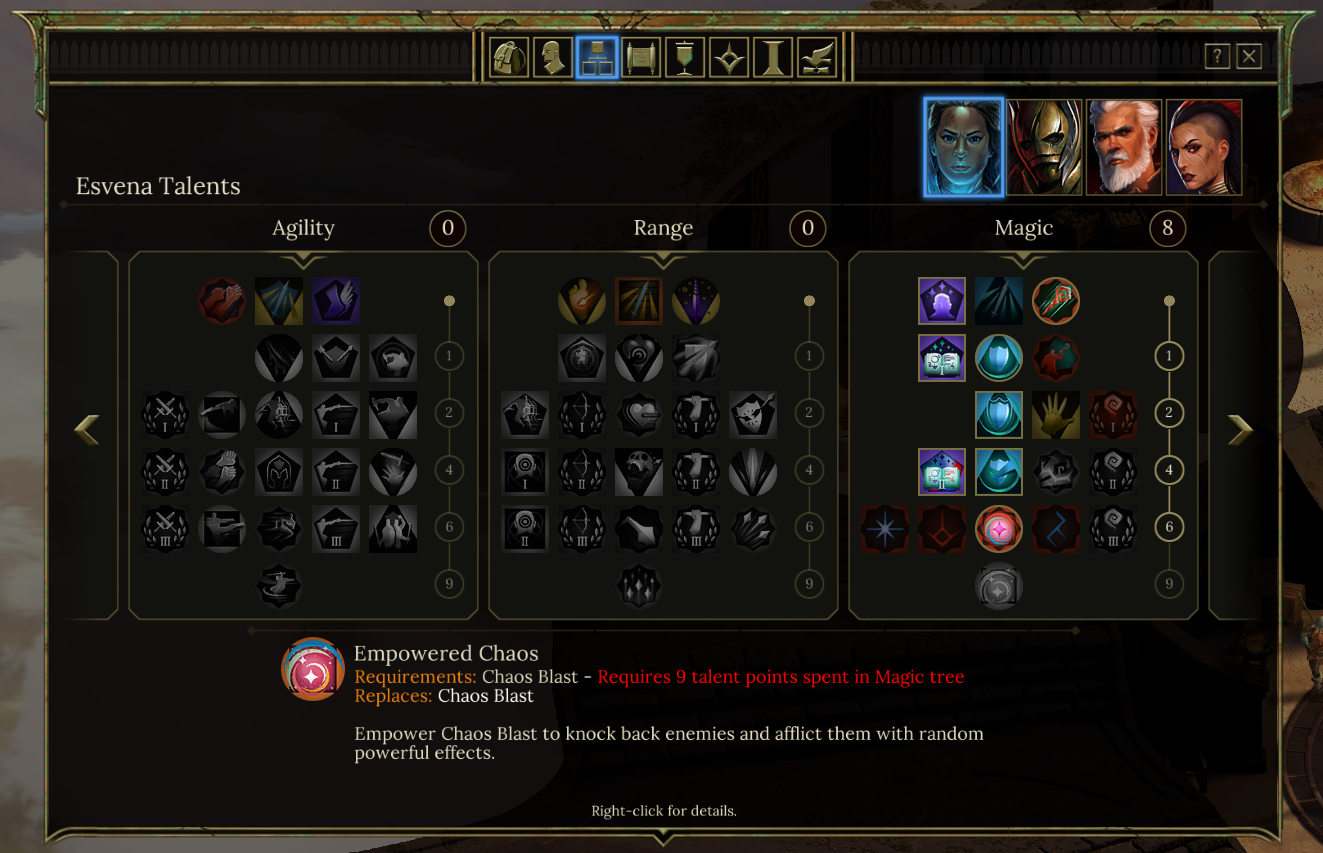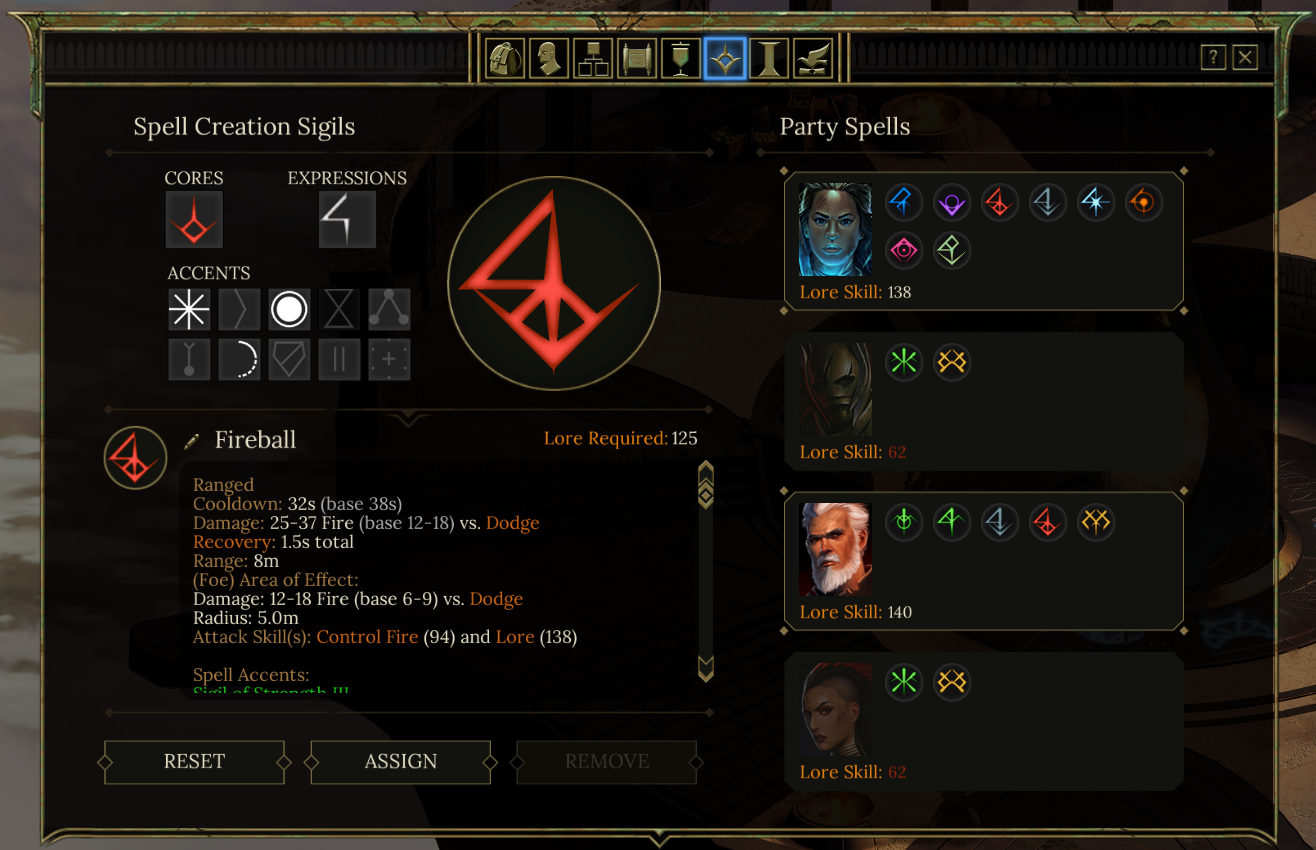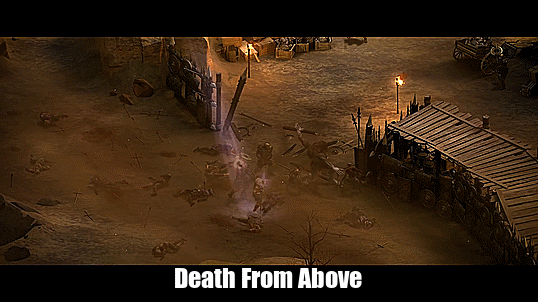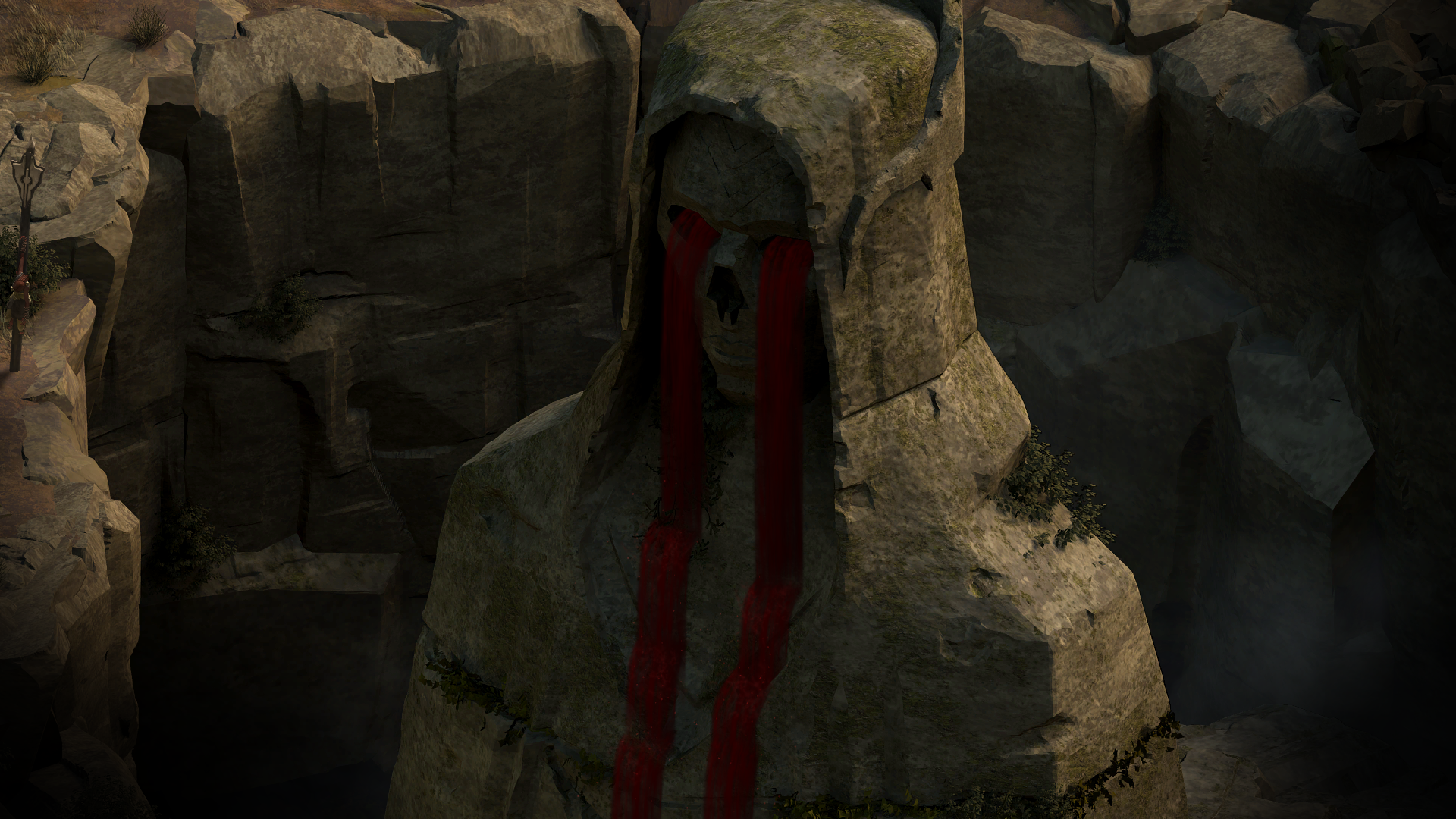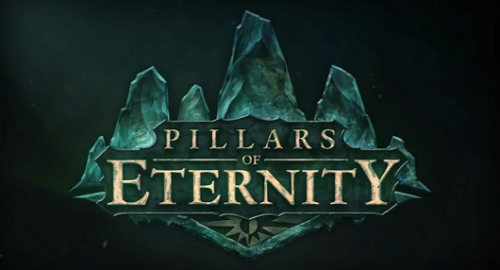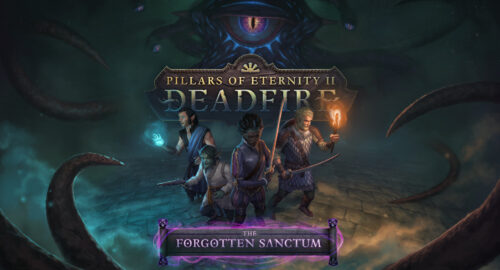Following the success of Pillars of Eternity, Obsidian Entertainment returns with their newest CRPG creation; Tyranny. With the tagline “Sometimes, Evil Wins” it promises to be even darker than its predecessor. Featuring a more focused story and building upon the mechanics of PoE, Tyranny offers players the chance to don the black hat and wrestle with the realities of what a world where evil has already won would actually be like. While Obsidian may not be the first developer to tackle the premise, they have realized it in a way nobody has before.
Tyranny is set in a world that is transitioning from the Bronze Age into the Iron Age. An evil Overlord by the name of Kyros, whose true gender is never confirmed, has conquered almost all of the known world of Terratus. In this world the mightiest of people are known as Archons; beings who possess extraordinary powers which develop through sheer will and are galvanized by legend. Many started off as heroes only to be given a simple choice; submit or die. The Archons are the tools with which Kyros has conquered the world and the instruments with which she controls it.
Chief among them is Tunon the Adjudicator, Archon of Justice. He ensures the laws of Kyros are obeyed and mediates disputes in the Overlords name. The Overlords form of justice, and by extension that of Tunon, is a harsh one but not without logic or purpose. Tunon created the Fatebinders to be his instruments and to adjudicate issues he cannot attend to himself. Players will find themselves among the newest of Tunon’s Fatebinders, one given a task of great importance; to issue an Edict of Kyros.
The game takes place in a region known as the Tiers; the last group of nations to fall to Kyros and seemingly the last place in the known world to be conquered. Players can choose to select a Quick Start option that makes certain decisions for them in regards to siding with one of the two armies that have jointly conquered the Tiers, the Scarlet Chorus and the Disfavored, or choose to begin the game as a neutral party who favors neither faction. The game will provide a summary for each choice that explains how the players character behaved during the conquest of the Tiers. Which while certainly the faster option, it is nowhere near as rewarding or engaging as choosing the Conquest option instead of a Quick Start. Conquest allows the player to make a number of direct decisions about how the Tiers was conquered and what role their character played in that conquest. It’s basically a mini text adventure with motion comic flourishes. Regardless of which option the player chooses, Quick Start or Conquest, the ramifications from the decisions made during the conquest of the Tiers reach far beyond simply setting the initial stages of the game. NPC’s will reference your decisions, areas of the game will look radically different and options may be opened or closed to you.
• Developer: Obsidian Entertainment
• Publisher: Paradox Interactive
• Reviewed on: PC
• Also Available On: OS X and Linux
• Release Date: November 10, 2016 – Available Now
When the proper game starts the Tiers have been conquered but a region known as Vendrien’s Well, in the realm of Apex, has rebelled. The two armies, The Scarlet Chorus and the Disfavored, that jointly conquered the Tiers have taken to infighting and bickering, failing to put down the rebellion. Kyros is displeased and has ordered that an Edict, a magical spell of immense power, be invoked over Vendrien’s Well. It falls to the player to be the one to invoke the Edict on behalf of Kyros and mediate between the two armies in order to put down the rebellion. Should the forces of the Scarlet Chorus and the Disfavored fail to put down the rebellion before the appointed day everyone in Vendrien’s Well will die; including the player. It’s a hell of a way to kick things off and serves as the games first act. Don’t worry, the time limit is more of a narrative device than an actual danger. You’ll have more than enough time to see and do everything in this initial area before time runs out.
At first glance it appears as if the game is presenting the player with three main story paths; side with the Scarlet Chorus, the Disfavored or the Rebels. However a fourth path does exist, that of Anarchist. While the first three options follow a semi-preset path, the Anarchist path requires a conscious effort on your part to focus on amassing power for yourself. On my first playthrough I sided with the Scarlet Chorus, a rabid army of forced conscripts pulled from conquered lands. The Scarlet Chorus is made up mostly of regular folk forced into service, with a small cadre of elite killers as their backbone. They serve out of fear and follow a simple rule; the strongest lead and the weakest die. I chose to side with them because their leader, the Voices of Nerat (Archon of Secrets), seemed the most “evil.” Nerat takes the idea of multiple personality disorder to the extreme. It appears as though he absorbs the minds of those he interrogates/butchers. Leaving him an erratic madman, albeit one with access to the untold secrets of his victims.
I found the leader of the Disfavored, Graven Ashe (Archon of War), a little bit too honorable and a little too similar to other warrior generals I’d encountered in other RPGs. The Disfavored are smaller in number than the Chorus but are highly trained warriors that would follow Graven Ashe anywhere. Which is not to say he is not an evil, brutal monster, even if the power of protection that he extends to his troops seems “nice.” The two Archons could not be more dissimilar. The Rebels on the other hand have no Archon leading them and are doing their best to get the rest of the Tiers to rise up against Kyros and his forces. Of course, since this is a game about evil, you can betray any of the three main factions and forge your own path.
Tyranny is a much more focused game than Pillars of Eternity was. I’m sure people will lament that Tyranny is not more like PoE but I found the story much easier to follow. PoE made my GOTY list but even I have to admit it went a bit overboard with the writing, often loosing its way and at time eating its own tail. The naming conventions in Tyranny are a lot easier to follow and the wider story makes a lot more sense. The writing is still top notch, whether in regards to world building or dialogue. A game with a premise like Tyranny’s could have very easily slid into cliche camp or disgusting, shallow horror but the fantastic writing keeps it solidly in the realm of believable, practical evil. Which in a very real sense makes the darkness of the game that much more poignant.
The choices you make, either by deed or via dialogue, have consequences that affect how the story plays out and on the world at large. You’ll need to play through the game more than once to see and do everything. It will probably take three or four playthroughs to confidently say you’ve done every quest, visited every location and met every NPC character. The writing does a good job of keeping all the varied tendrils you could pull on digestible and easy to follow. The highlighted text hint system is wonderful and helps keep the player informed about key characters, places, events and history. No more trips through menus or referring to journal entries constantly. Of course if you don’t like reading this game is probably not going to be your cup of tea. Like PoE there is not a lot of voice acting, but what is there is well done if perhaps not always memorable.
The cast of characters are varied and feature some nice twists on convention. You have Barik, a warrior trapped in his suit of armor who is your main tank. His sense of honor and duty don’t always mesh with the evil around him. Verse, a ruthless killer proficient with dagger and bow, provides a lot of the games humor while simultaneously being the most overtly “evil” of your companions. The by-play between Barik and Verse is pretty great. Lantry the sage is an old man but not a helpless one. He’ll be your go to healer as he has access to healing talents nobody else can obtain, including the player. He does not care much about good or evil so long as he can gain more knowledge. Sirin (Archon of Song) fills the role bards do in most RPGs in that she uses her songs to buff allies and debuff enemies. Bards are almost always bubbly, happy go lucky characters or overly dramatic types. In Tyranny Sirin is a twisted person who has used her powers to do terrible things. Her at times quirky sense of humor barely hides the soul that was corrupted by her own powers long before Kyros came into the picture. You also have Eb the water mage who is pragmatic, harsh and the closest thing to a “good” companion you’ll have. Last but not least you have the beastwoman Kills-in-Shadow. She resembles a werewolf and is just as deadly with her bare hands as she is wielding two handed weapons. She provides one the funnier conversations in the game when she asks the party to play her version of f*ck, marry, kill.
When it comes to creating your own character the options are pretty standard CRPG fare. You can play as a man or a woman, select from three different body types, select a skin tone, face, hair, tattoos, voice and select from a pretty diverse set of avatar images. Next you’ll be able to select one of eight character histories with options like Pit Fighter or War Mage. These premade histories are not just flavor text. At several points throughout the game your history will open up dialogue options and will be referenced by NPC characters in the world. The next portion has you selecting a primary expertise from ten options such as shortbow or frost spells. You follow that up by choosing a secondary expertise from the same list. If you want you can choose the same expertise twice, with your primary choice having a larger impact on your stats than your secondary one. You then choose your characters primary colors and create your own banner which will serve as your marker on the world map. Picking a character name in an RPG is always fun and since this is not an online game you don’t have to worry about someone else already using whatever ludicrous name you want to give yourself.
When you get to the stat section of character creation you have two main sections to contend with; attributes and skills. Attributes are broken down into six categories: Might, Finesse, Quickness, Vitality, Wits and Resolve. Attributes have the largest affect on the overall stats of your character and can only be increased when you level up. Skills are broken down into seven weapon categories, five support categories and up to two magic categories depending on what expertise(s) you selected earlier. The weapon categories are: Magic Staff, One-Handed Weapons, Bows, Dual Wield, Thrown Weapons, Two-Handed Weapons and Unarmed Combat. The support categories are: Dodge, Lore, Parry, Athletics, and Subterfuge. Lore, Athletics and Subterfuge all create dialogue options while you play the game as well as several instances where they allow you to interact with objects in the world. Lore in particular is critical for anyone focusing on magic and should be maximized from the very start. It’s a good idea for melee fighters to focus on their weapon of choice and Athletics whereas magic users should focus on their chosen spell schools and Lore.
The magic category will only appear if you selected one or two spell schools as your expertise (Frost and Shock for example). Skills will increase organically as you play the game. Everything from disarming traps to certain dialogue options will increase your skills over time. You’ll also have the option to pay trainers later on to increase your skill levels, but you’ll only be able to increase your skills five points total per level per party member. Even if you don’t select a magic expertise or dump points into lore during character creation everyone in your party will eventually get some points in Lore which will allow even your tank to cast some spells. The on-screen tips are pretty good at explaining what everything is and why they are important but like all CRPGs the only way to really get a handle on the intricacies of the systems is to play the game and experiment.
As a quick aside I’d like to mention that it is VERY helpful to check out the Auto-Pause section from the main menu options. This will allow you to select when the real time combat/exploration is auto-paused while you play. I personally played with Character Death, Combat Start and Hidden Object Found toggled on. Combat Auto-Slow and Enemy Spotted are also pretty handy. You can also toggle a Colorblind Mode, Gibs and Font Scale in the Graphics section. Check out the selections available in the main menu options BEFORE you start playing. I have yet to encounter any crashes or noticeable bugs.
Once you are actually playing and leveling up you’ll also be able to choose Talents. These are special moves, spells, powers and passive buffs. You’ll be able to choose one every time you level. Your main character will have six Talent trees to select from: Agility, Range, Magic, Leadership, Defense and Power. Since there is no traditional class system in Tyranny you can build you character however you want. That said it is better to focus on two trees (three max imho) rather than ending up a jack-of-all-trades and a master of none. Your companions will only have access to two or three trees but theirs will be unique to them, with options the main character will not have access to. For example while any magic user can cast healing spells only Lantry has access to the best healing options. There does not appear to be a firm level cap but since there is only a finite amount of EXP to be found in the game most players will find their party somewhere between level 14 and 17 by the time the game ends. Keep that in mind when choosing your Talents as there is no way to reset them later on.
The magic system in Tyranny is one of its strongest areas; far and away better than what PoE had to offer, not too mention better than almost any western RPG period. It’s actually kind of insane how deep it gets. Tyranny lets you build your spells rather than simply select from premade options. You’ll slowly build a collection of eleven core spell sigils: Atrophy, Fire, Illusion, Vigor, Force, Life, Emotions, Lightning, Frost, Stone and Terratus. Some of these you’ll pick up no matter what you do but others will require you to learn them from companions or discover them (Lantry’s Voice of Ages talent is important for this!) in certain locations across the world. Once you select a core you’ll choose one of six expression sigils: Focused Intent (single target), Distant Impact (distant target), Channeled Strength (target a cone in from of you), Material Force (buff a weapon), Directed Force (target everything in line in front of you) and Proximate Action (create a lasting aura on a character).
If it ended there Tyranny would already have a great magic system but it gets even crazier. Once you have chosen a core sigil and an expression sigil you can choose from a vast selection of accent sigils (33 I believe). Accents add effects to your spells like increasing their potency, accuracy, area of effect and more. Best of all you can tweak and swap spells any time you are not in combat and add them to any member of your party with the Lore required. The more sigils you use to build a spell the higher your Lore will have to be in order to use them. Some sigils require more points in Lore than others. So companions with a low Lore stat will probably only be able to use a spell with a core, expression and maybe one accent sigil whereas your magic users with a high lore stat will be able to use far more complex spell builds. You can get lost just playing with the magic in Tyranny and I hope to see more of this system in others games from Obsidian.
The pause-able real time isometric gameplay in Tyranny is rock solid and takes full advantage of the games many complimentary systems. Every companion has unique combo attacks/abilities that work in concert with either the main player or another companion. They are all useful, super powerful and look cool as hell. The animations in Tyranny are a step above what PoE and other CRPGs unusually offer. Spells look incredible sure, but it is the more dramatic stuff that really catches the eye. Some of them are even funny. Once you start to find Artifacts, Tyranny’s high end gear, the light show really starts to go off. The games regular gear is the standard progression of Common, Fine, Superior, Exquisite and Masterwork varieties. Common and Fine gear is basically junk after Act I. The UI is easy to use and understand. What the game does lack are cool enemies to fight. By and large you’ll spend 90% of the game fighting other human beings who all fall into the usual default categories (ranged, heavy melee, rogues, casters etc). Which makes sense within the context of the world but it would have been nice if they found a way to add some variety to the encounters. There are a only a few supernatural creatures in the game but they are kinda boring both visually and in terms of combat. The biggest change ups are the games handful of boss fights which really test your metal and throw some curve balls at you.
Exploration in Tyranny is solid and varied but not nearly as expansive as PoE or other modern western RPGs. There is a fairly large world map to explore but your ability to go where you want, when you want is very limited. At any given time you’ll have one main area to focus on and a few smaller side quest type areas to visit. As you progress more and more areas will open up but you’ll only need to return to a few of them (such as the market in Lethian’s Crossing) more than once. Some of the limitations on where you can go are the result of decisions you have made. Some locations require you to engage in conversations with NPCs before they appear. The artwork on display is fantastic if you are a fan of the style being used but a few things, like buildings, are reused a few times too often.
Which is not to say there are not some absolutely breathtaking maps to explore. That said the individual locations are usually on the small size with only a few exceptions. But even small maps are usually full of things to discover, battles to be fought and conversations to be had. The game also has a unique take on the idea of a “home base.” Rather than a single location your “base” is actually spread out across five spires located in various parts of the world map. Four of the five spires will let you build a unique improvement on top of them such as a forge (build this first!) or a Library. You can staff the spires with various NPCs who provide things like training, items and crafting. The spires are where the companions not currently in your party will be found. Each spire allows you to teleport to any other discovered spire directly without costing any travel time. If you try to travel long distances across the world map your party will automatically use the spires to help speed up your journey.
Where Tyranny deviates from a lot of its RPG peers is its length. Playing on Hard difficulty, completing every side quest available and reading every single thing I was presented I was able to finish my first playthrough in just under 35 hours. There is some give or take depending on the path you take through the game and how fast and how much you read. Even so I’d say the average player will pull somewhere between 25-35 hours out of their first playthrough. Which is not so short that I feel cheated or ripped off but it is kinda disappointing. Especially given how the game ends. After a few tense boss battles the game makes it clear that more craziness is on the way. And then the game ends. Yes players are given a nice summation of the story told so far and the consequences of decisions you have made but Tyranny ends with a clear nod at a sequel or upcoming DLC. It’s by no means the worst ending I’ve encountered in an RPG (Bioware still holds that crown) but when combined with the games relatively short length it does sting a little. Regardless, I have started a second playthrough in earnest, following the Anarchist path, and just passed the 51 hour mark of total play time. Ultimately I am confident I will pull 70+ hours out of Tyranny.
I really, really enjoyed playing Tyranny. I dare say I enjoyed it more than Pillars of Eternity. I liked the more focused story and more fully realized game systems. The whole “Sometimes, Evil Wins” tagline lived up to the hype. It was fun being the evil guy without feeling gross or feeling like a cartoon villain. I would have loved for it to be longer with a more stand alone ending. Some more enemy types to fight would have been nice. But my complaints can’t take away from how much fun I had playing. There is more than enough incentive for two or three more playthroughs so I can see the locations I missed and experience the quests I did not unlock the first time. I hope the DLC and/or the sequel are not too far off because I definitely want more of what Obsidian is selling.
